NEW OPEN SOURCE DEAL FOR WEB3 ETC SUMMIT OCTOBER 2019
A presentation at Ethereum Classic Summit in October 2019 in Vancouver, BC, Canada by Boris Mann

NEW OPEN SOURCE DEAL FOR WEB3 ETC SUMMIT OCTOBER 2019

BORIS MANN • 15 years ago, worked on building out the Drupal community, built the first commercial company around Drupal, helped form Drupal Association • Last year, focused on Ethereum community, helping out with the Ethereum Magicians, Core Devs • Fission is building developer tools: decentralized Firebase with user controlled data ✨

W H AT D O E S O P E N S O U R C E M E A N ? The problem with the term open source is that everyone means something different when they use it. Some people just mean licensing. Some people think of a particular community’s set of practices. Others think that it means some kind of fuzzy democracy and mob rule.

DEFINITION OF OPEN SOURCE

COMMONS BASED PEER PRODUCTION Lots of people work on it, everybody benefits from it, and then people can build upon it (even in a revenue generating fashion) Ted Leung: Explaining Commons Based Peer Production, er, Open Source (2005)
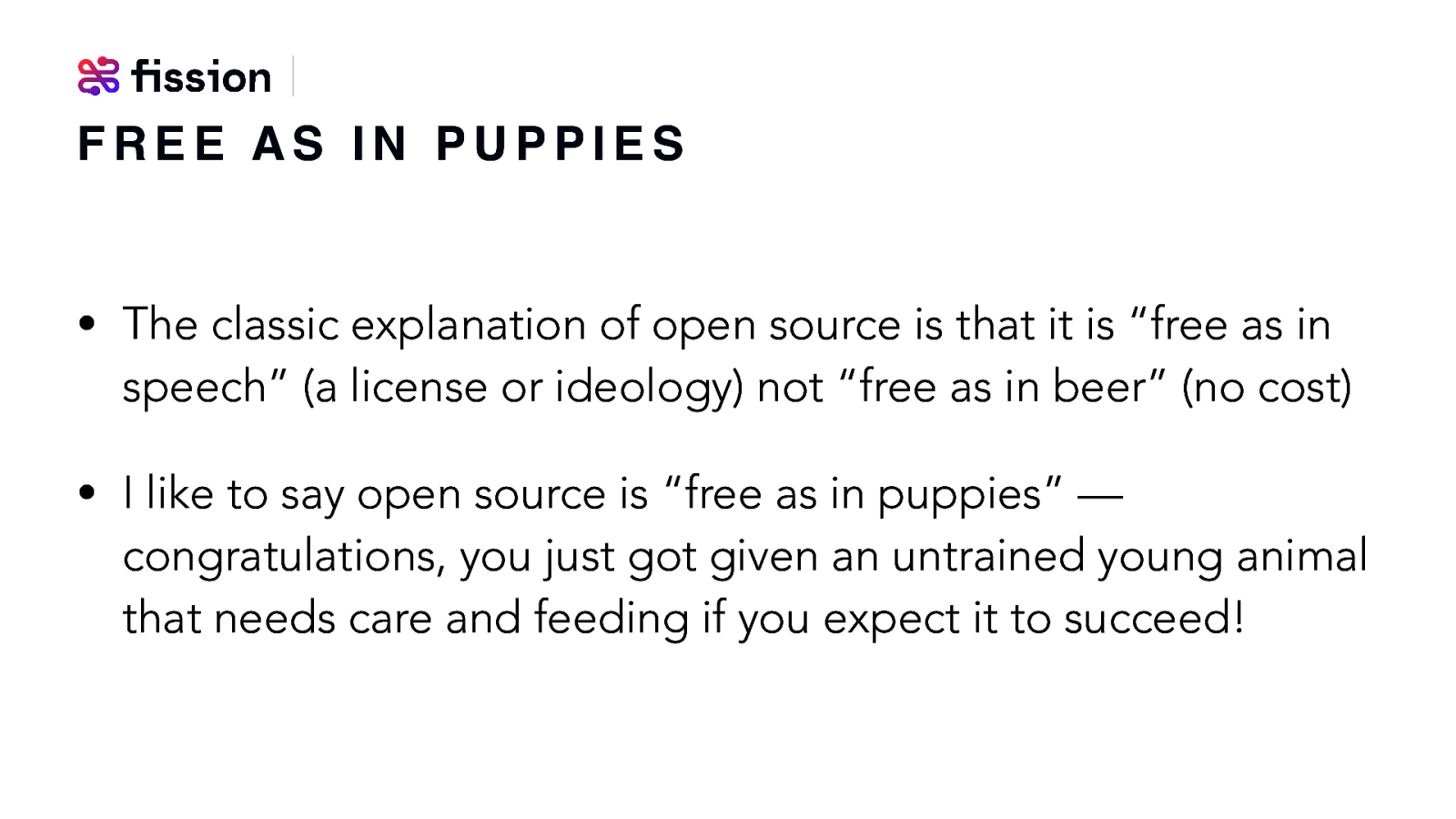
FREE AS IN PUPPIES • The classic explanation of open source is that it is “free as in speech” (a license or ideology) not “free as in beer” (no cost) • I like to say open source is “free as in puppies” — congratulations, you just got given an untrained young animal that needs care and feeding if you expect it to succeed!
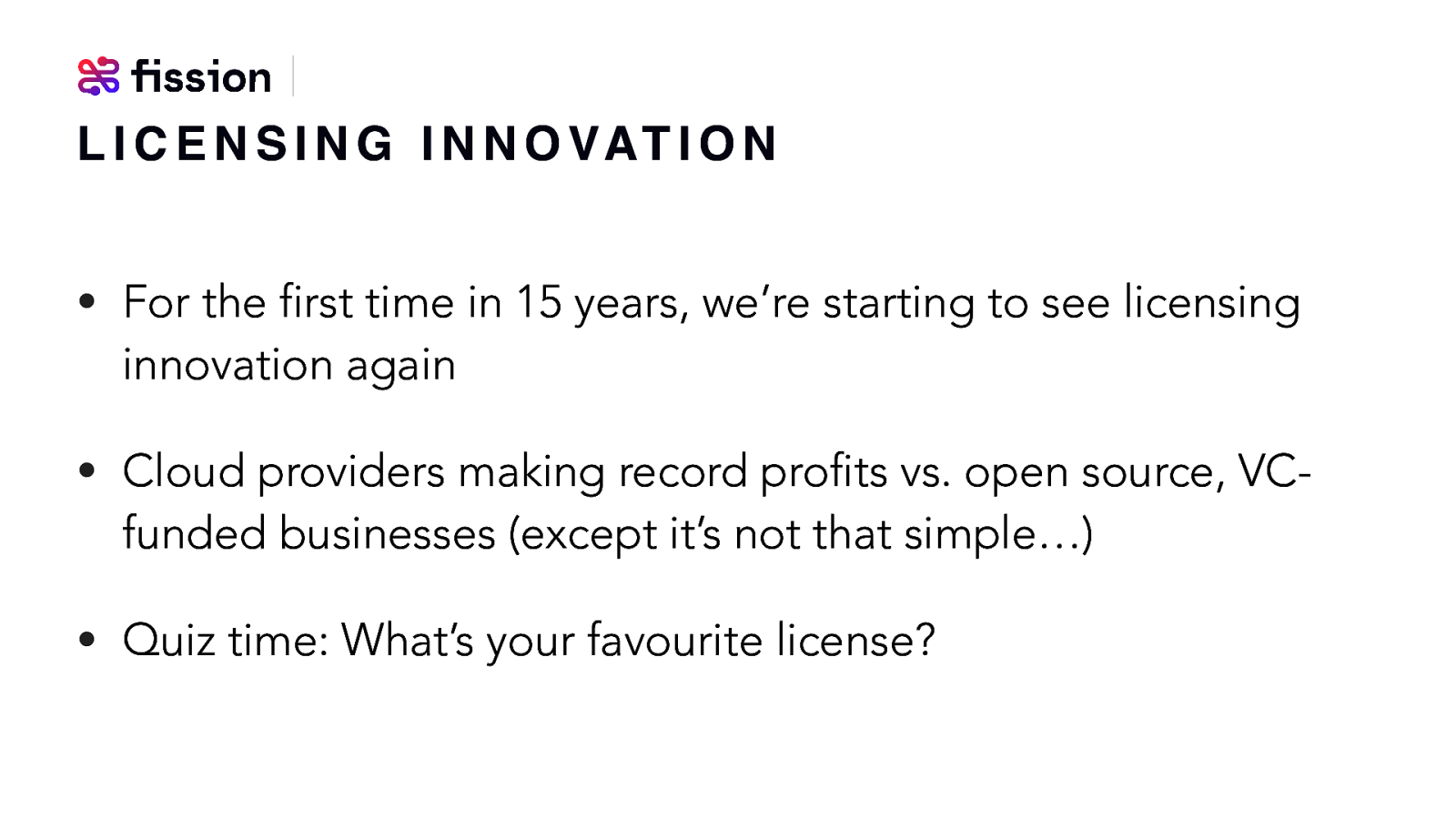
L I C E N S I N G I N N O VAT I O N • For the first time in 15 years, we’re starting to see licensing innovation again • Cloud providers making record profits vs. open source, VC- funded businesses (except it’s not that simple…) • Quiz time: What’s your favourite license?
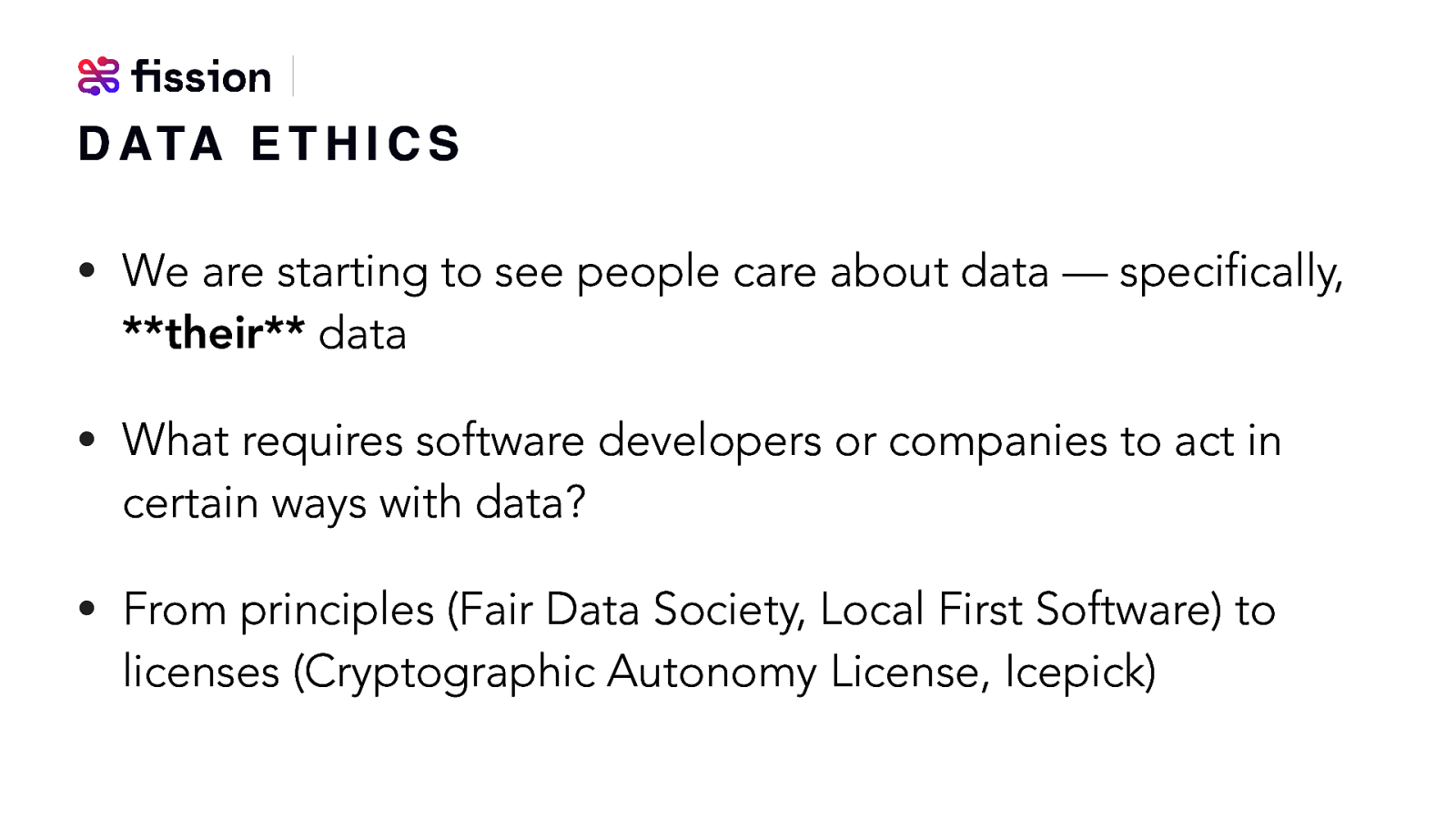
D ATA E T H I C S • We are starting to see people care about data — specifically, their data • What requires software developers or companies to act in certain ways with data? • From principles (Fair Data Society, Local First Software) to licenses (Cryptographic Autonomy License, Icepick)
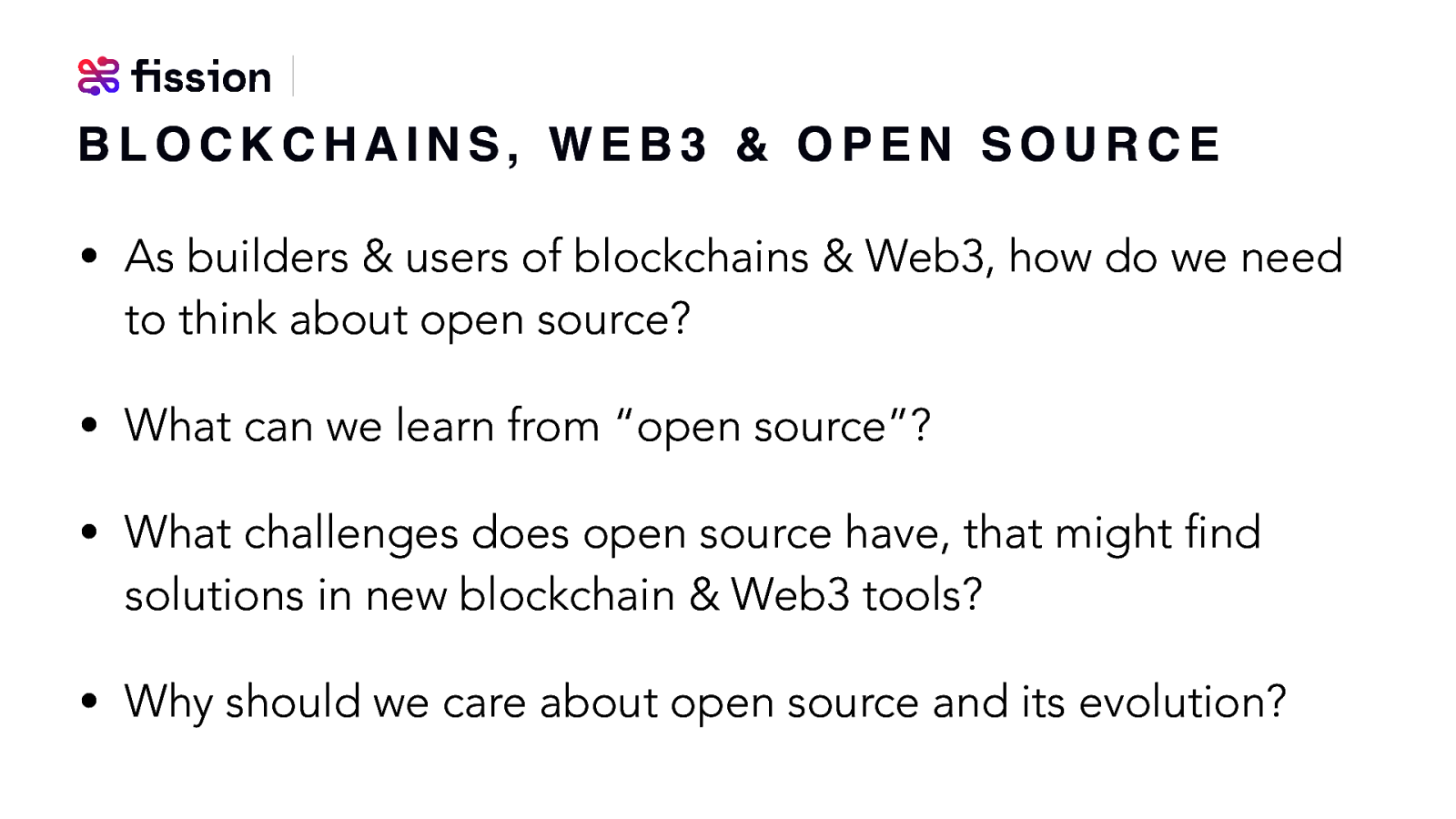
BLOCKCHAINS, WEB3 & OPEN SOURCE • As builders & users of blockchains & Web3, how do we need to think about open source? • What can we learn from “open source”? • What challenges does open source have, that might find solutions in new blockchain & Web3 tools? • Why should we care about open source and its evolution?
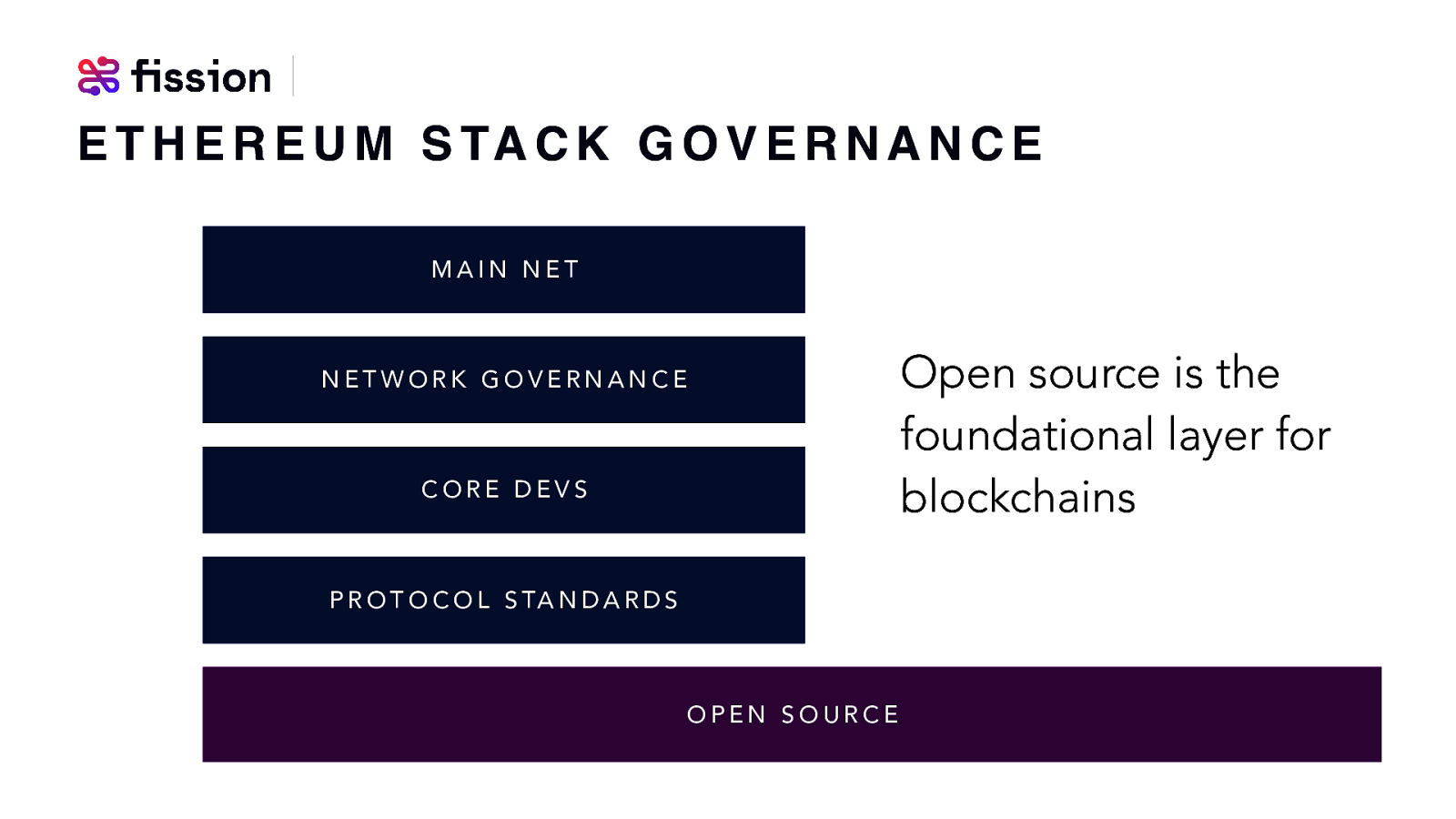
E T H E R E U M S TA C K G O V E R N A N C E MAIN NET NETWORK GOVERNANCE CORE DEVS P R O T O C O L S TA N D A R D S OPEN SOURCE Open source is the foundational layer for blockchains
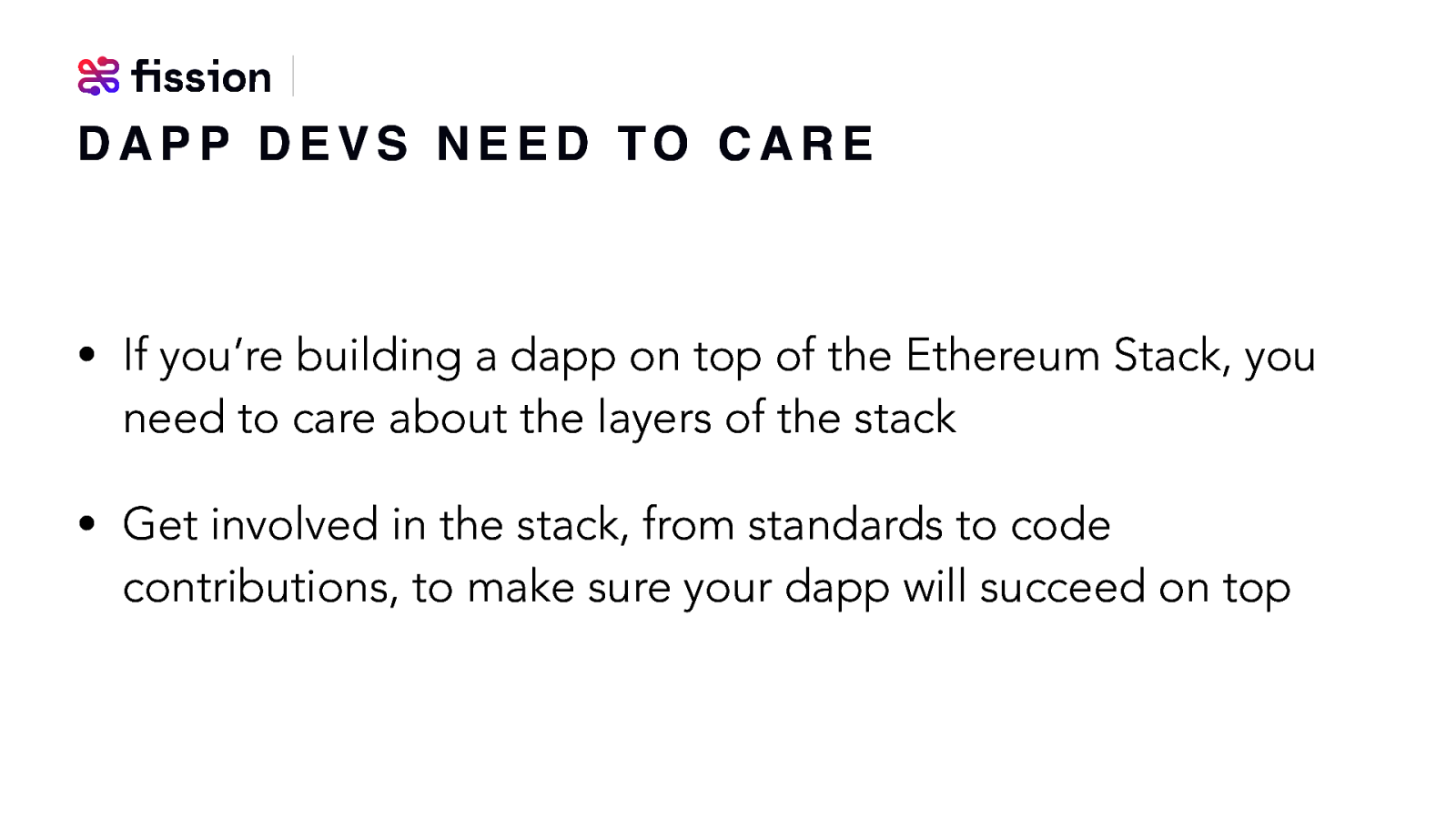
DAPP DEVS NEED TO CARE • If you’re building a dapp on top of the Ethereum Stack, you need to care about the layers of the stack • Get involved in the stack, from standards to code contributions, to make sure your dapp will succeed on top

If you’re not contributing code, community, or ca$h, you should go build on AWS

M A K E R S A N D TA K E R S Balancing Makers and Takers to Scale and Sustain Open Source Dries Buytaert https://dri.es • What’s the formula for incenting more makers? • We don’t need to punish takers, but we do need to celebrate and potentially reward makers

PUBLIC GOODS VS COMMON GOODS Dries Buytaert https://dri.es

PUBLIC GOODS VS COMMON GOODS • The open source layer of clients, middleware, wallets, and so much of our blockchain ecosystems, are public goods: more people consuming them doesn’t cost anyone anything (but maybe “support” or “onboarding” does) • Filling blocks with transactions (and state bloat!) are common goods: we can’t exclude anyone, but if blocks are full or low resource clients can’t sync, other people can’t use them

F * C K O P E N S O U R C E S U S TA I N A B I L I T Y Sustainability is another way to say subsistence . This is why the common phrase “open source sustainability” isn’t ideal. We should set our goals higher than subsistence. Folks who work on open source have a right to thrive and to be fairly compensated for our labor. Feross: The funding experiment recap

A NEW DEAL • Open source is a key enabler and foundation for Blockchains & Web3 • We are practicing commons based peer production while building & operating global public blockchains • Figuring out a New Deal for Open Source is crucial if we expect to keep our systems running for decades
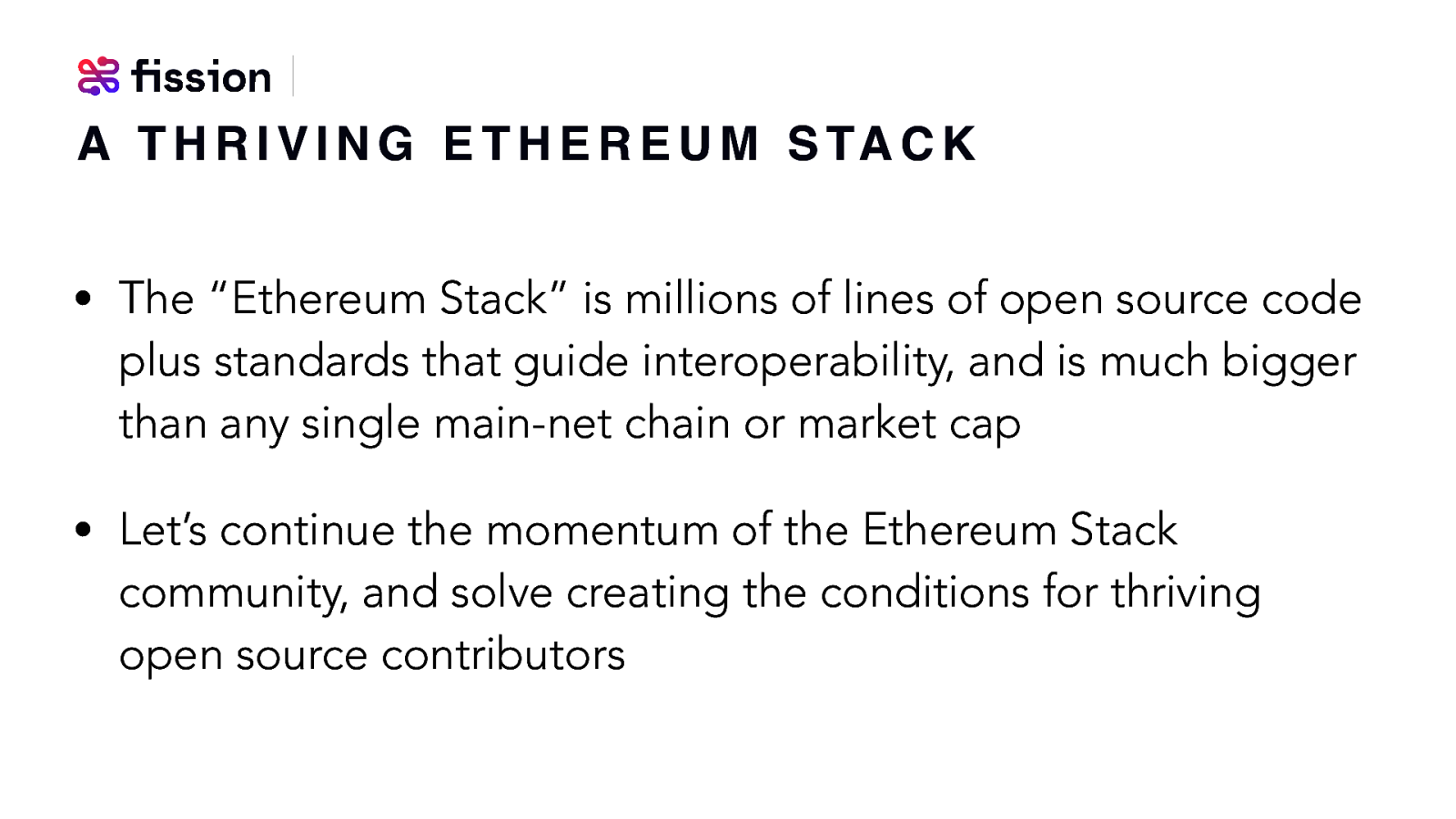
A T H R I V I N G E T H E R E U M S TA C K • The “Ethereum Stack” is millions of lines of open source code plus standards that guide interoperability, and is much bigger than any single main-net chain or market cap • Let’s continue the momentum of the Ethereum Stack community, and solve creating the conditions for thriving open source contributors
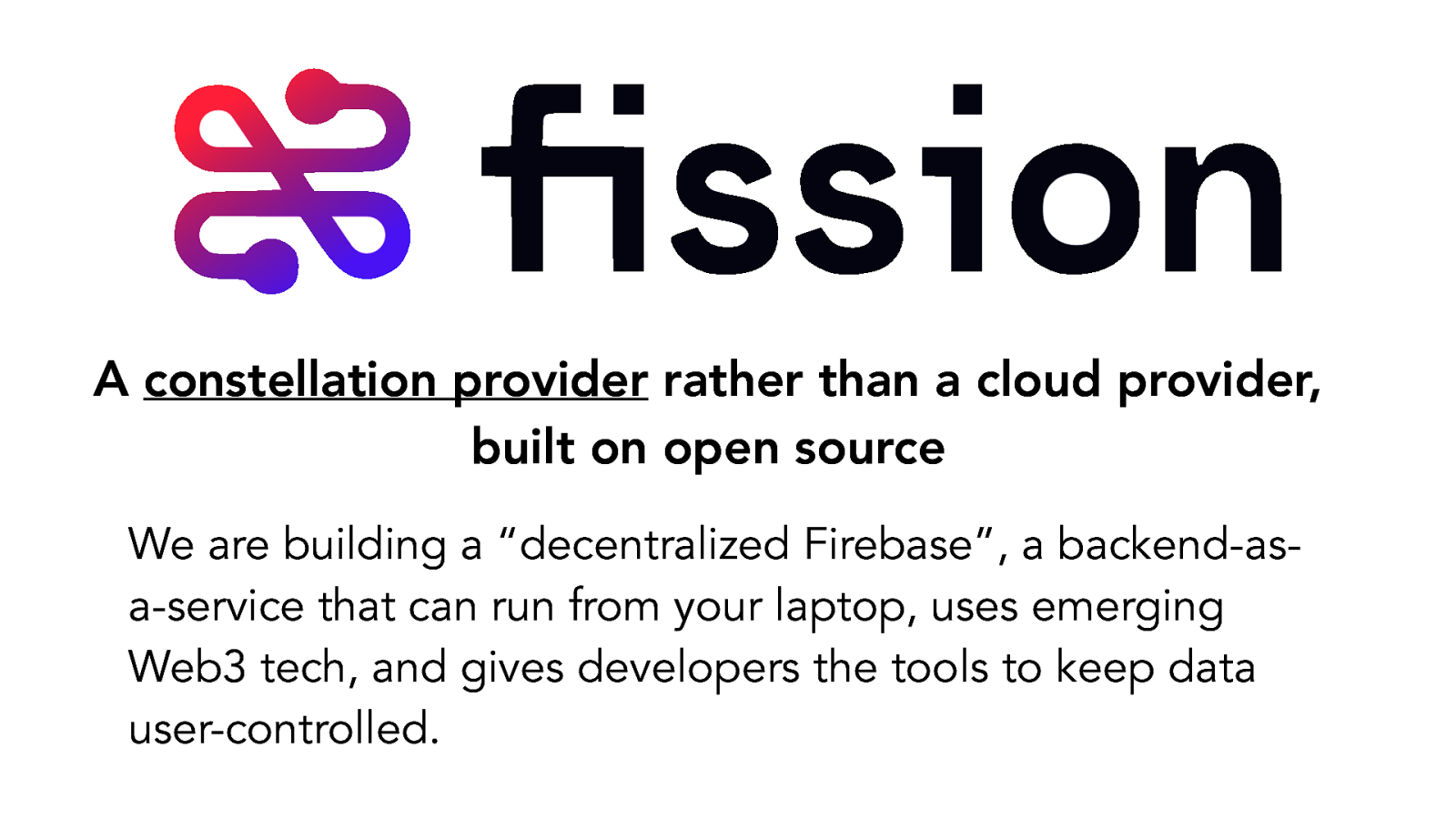
A constellation provider rather than a cloud provider, built on open source We are building a “decentralized Firebase”, a backend-asa-service that can run from your laptop, uses emerging Web3 tech, and gives developers the tools to keep data user-controlled.
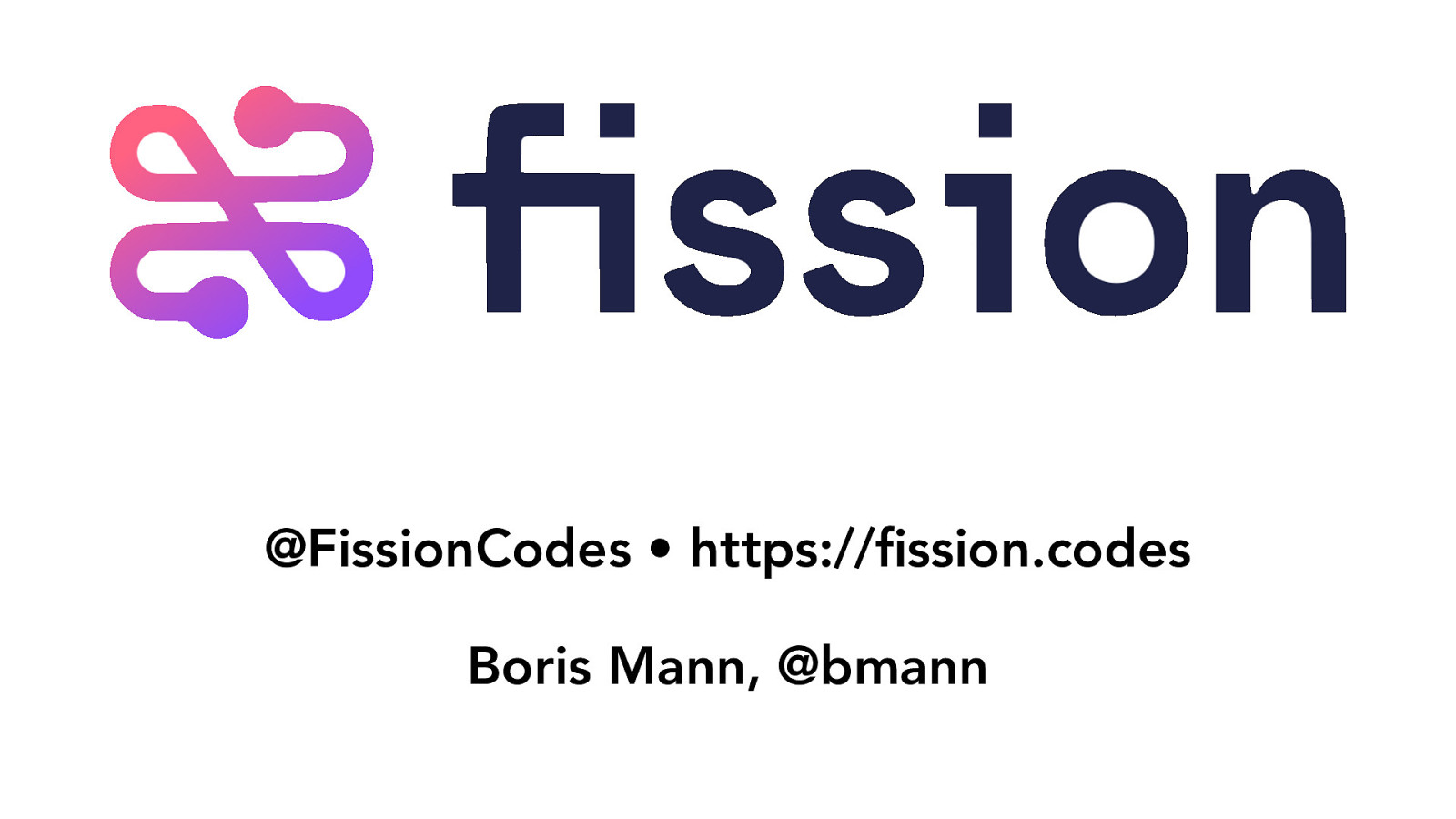
@FissionCodes • https://fission.codes Boris Mann, @bmann